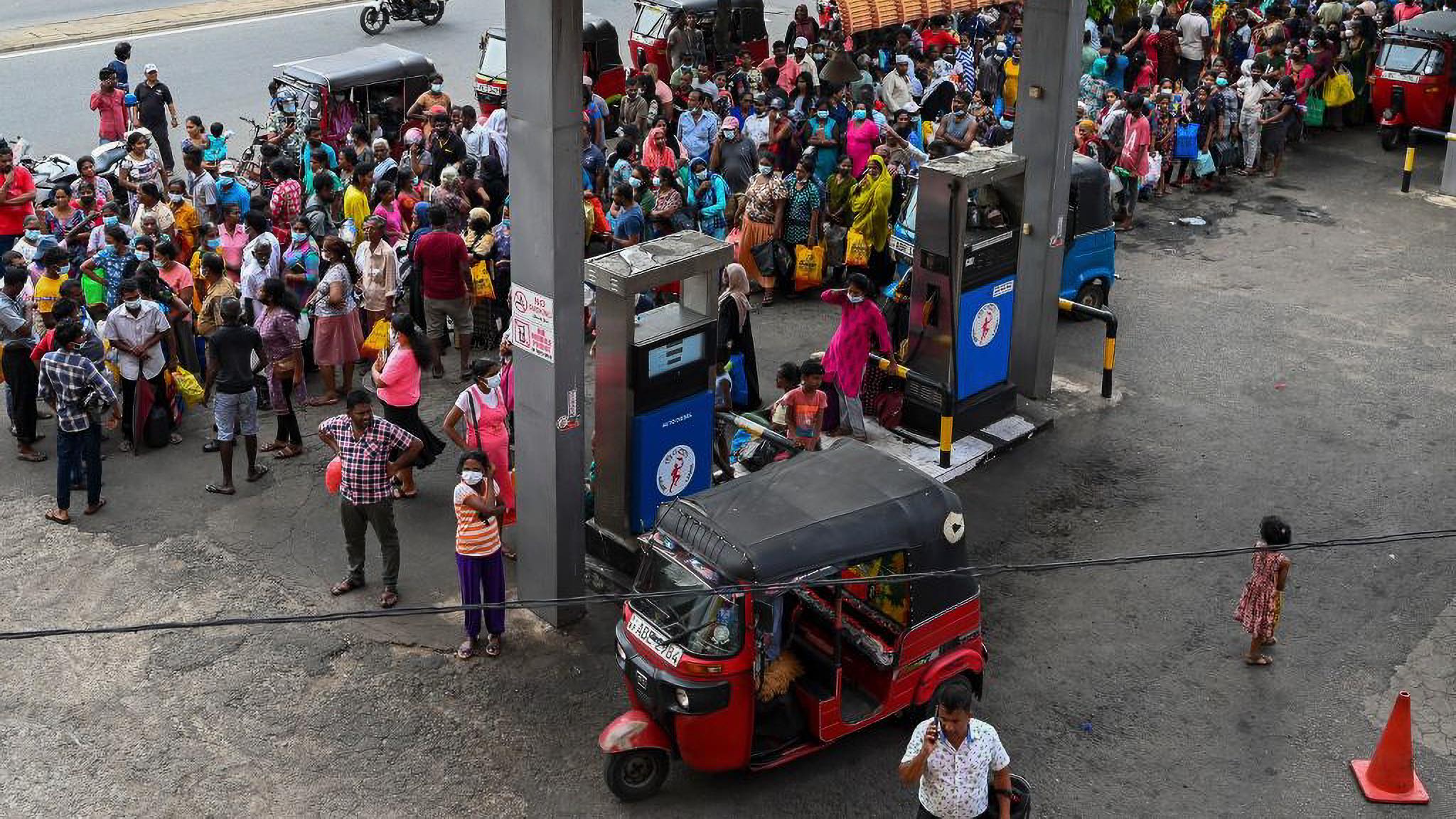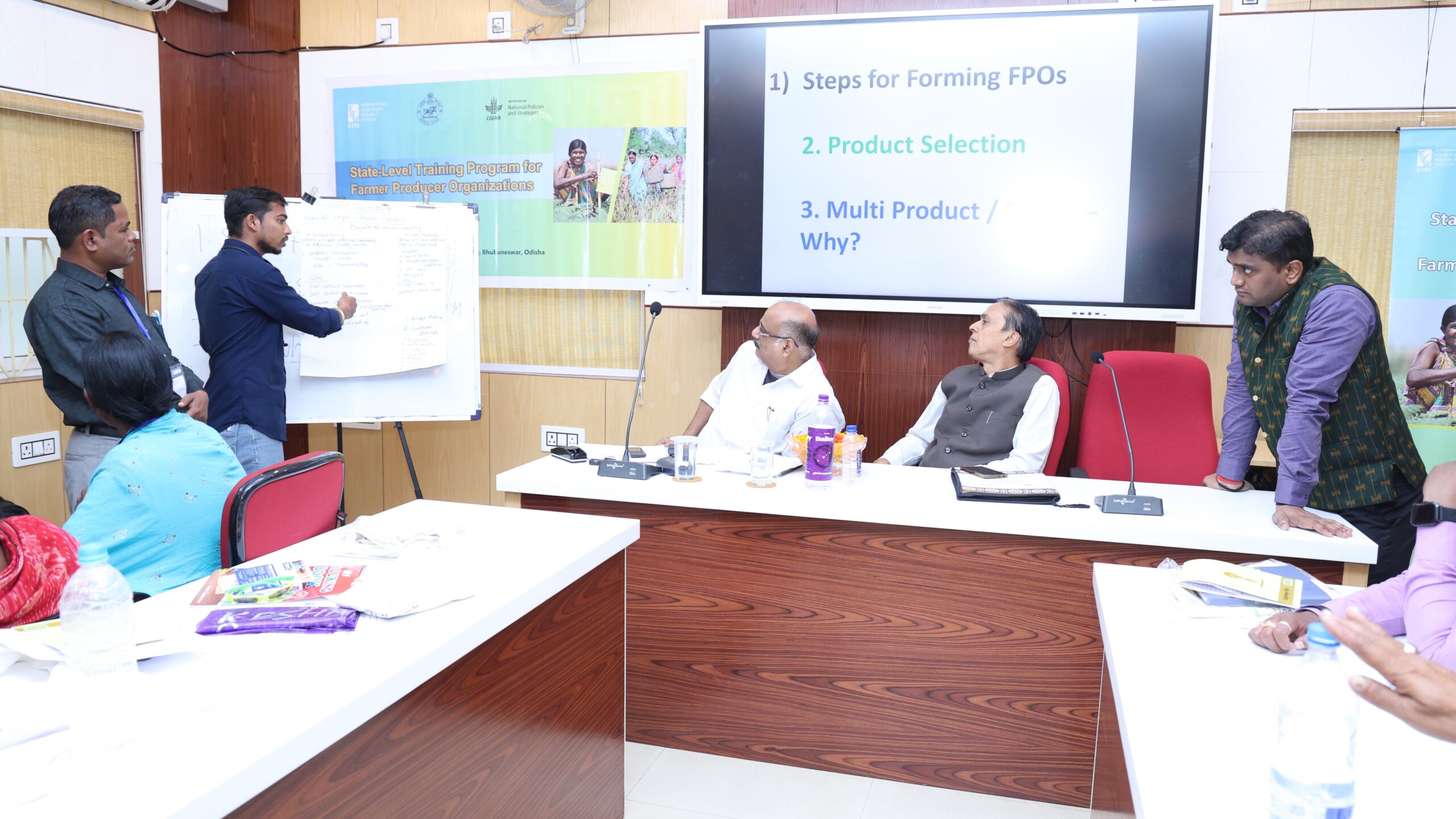As the American polymath W. Edwards Deming once famously said, “In God we trust; all others bring data.” Unfortunately, bringing data and evidence to policy deliberations has not always been the norm in Sri Lanka’s recent political history. From 2022 to the present, the country experienced the worst economic crisis since its independence—a crisis precipitated by policy decisions made without consideration of rigorous evidence or sound economic advice, including escalating government debt, depletion of foreign reserves, and a disastrous fertilizer import ban. Since late 2022, a bailout package by the International Monetary Fund (IMF) and policy reforms have steadied Sri Lanka’s macroeconomy, though the ordinary citizen remains far poorer than she was before the crisis.
The arrival of a new government in late 2024 led by the reform-minded National People’s Power (NPP) party offers a promising opportunity for policymakers and researchers to contribute much more to rebuilding the Sri Lankan economy. A key new resource for those efforts is the BRIGHT (Building Resilience, Inclusive Growth, and Holistic Transformation) survey.
This project—begun in 2024 by the CGIAR Poverty Reduction, Livelihoods, and Jobs Impact Area Platform and IFPRI, with support from the International Water Management Institute and local partners—aims to implement a nationally representative, multi-thematic household survey for Sri Lanka. The BRIGHT survey will fill crucial evidence gaps on changes in poverty, the impacts of social safety net reforms, the recovery of both farm and non-farm livelihoods, malnutrition and its many root causes, women’s empowerment, mental health and happiness, and food, energy, and water security.
A November 21 webinar, organized by IFPRI and the CGIAR Livelihoods Platform, explored key elements and potential applications of the BRIGHT survey data with experts from Sri Lankan and international agencies. Building on the event, this post outlines Sri Lanka’s recent history, current challenges, and the BRIGHT survey’s potential to foster a faster and more inclusive economic recovery at this critical point of national transition.
Anatomy of a crisis
In the decade preceding the COVID-19 pandemic, successive Sri Lankan governments pursued expansionary fiscal and trade policies leading to large budget deficits, continuing the country’s long history of what famed Cambridge economist Joan Robinson in 1959 called “tasting the fruit before planting the tree.”
In 2019, the newly elected government of President Gotabaya Rajapaksa seemed to exacerbate this trend by dismissing data and bypassing any kind of evidence or transparent debate. The Rajapaksa government inexplicably cut taxes for the wealthiest segment of Sri Lankan society, reducing its tax rate from 28% to 18%, just a few months before the economic shock of the COVID-19 pandemic. This meant that government finances were in a weak position to deal with the severe shock and fiscal demands of the pandemic.
Fast forward to May 2021: President Rajapaksa did the unthinkable for an Asian leader, banning imports of chemical fertilizers overnight, under the mistaken belief that “going organic” would benefit both farmers and the government’s foreign exchange reserves. By the time the ban was lifted seven months later, yields of rice—the country’s staple food—had plummeted by a third, farmers were immiserated, and the trade deficit had been widened further due to falling agricultural exports and rising imports of key foods, including rice.
By March 2022, the Rajapaksa Government’s house of cards had collapsed. The government defaulted on its sovereign debt, the currency collapsed, inflation surged to 80%, and the real wages of both the poor and the middle class fell by 30% in a matter of months (Figure 1). Increasingly popular protests ensued. In July 2022, the Rajapaksa political regime tumbled from power, and Prime Minister Ranil Wickremasinghe assumed an emergency presidency. He immediately sought an IMF bail-out package and agreed to a severe but unavoidable austerity program.
Figure 1

Considering the severity of the economic crisis, it is encouraging now that, according to World Bank reports, Sri Lanka’s macroeconomy has started to turn the corner, reaching positive growth rates in 2024. However, a litany of welfare challenges persists for Sri Lanka’s citizens. Average worker incomes remain stagnant at 25% below their pre-crisis levels (Figure 1). Child malnutrition and mortality rates are 30% higher than pre-crisis levels. Agriculture continues to struggle and is highly vulnerable to the impacts of climate change. Crisis-induced emigration has led to a brain drain in almost every sector. And there is almost certainly an unprecedented but poorly quantified surge in various physical and mental health issues, including suicides and substance abuse.
Despite these hardships, a welcome dash of optimism emerged in late 2024 with fresh presidential and parliamentary elections peacefully bringing in a new regime led by the NPP party. Many NPP leaders have academic backgrounds, and hopefully more appetite for original data, research-based evidence, and scientific advice. Encouragingly, the NPP manifesto stressed the importance of reforms focused squarely on improving the welfare of ordinary Sri Lankans.
Enter the BRIGHT project
At this critical juncture in the country’s history, the central question is whether Sri Lanka’s new government can do things differently: Can data, evidence, and science play a leading role in influencing policy decisions, design, and implementation?
The BRIGHT project aims to support this ambition. In 2024, the Livelihoods Platform, in collaboration with IFPRI researchers, identified an opportunity to bridge science and policy in Sri Lanka by filling a critical data gap that has been hindering evidence-based policymaking: the lack of a nationally representative, multi-thematic household survey capable of answering a whole host of multisectoral policy questions.
Sri Lanka’s last nationwide comprehensive economic survey (from 2019) and Demographic Health Survey (from 2016) preceded the recent economic crisis. Specialized surveys conducted during the crisis by organizations including the World Food Programme, the UN Development Programme, UNICEF, the Institute of Policy Studies of Sri Lanka, and the Sri Lankan government provided valuable information on food security, economic welfare, and other topics. Yet these surveys were not designed to offer researchers a holistic view of the complex multisectoral interlinkages between poverty, food insecurity, malnutrition, and other dimensions of people’s well-being. Moreover, many of these surveys are not freely and publicly accessible, making it challenging for Sri Lankan and international researchers to develop new evidence independently, let alone share it with policymakers.
IFPRI—along with local and international partners—therefore led the design of the multi-thematic BRIGHT survey, encompassing 6,500 households to make the survey representative of Sri Lanka as a whole, as well as its rural and urban areas and estate sector. This survey, freely accessible to both local and international researchers and institutions, will provide a rich dataset to investigate an unusually wide range of welfare indicators. The survey is also highly innovative, as it incorporates newly developed modules on nutrition knowledge, water and energy security, and food consumption, and a number of survey experiments around gender-specific newly designed modules on farming, fishing, and livestock practices (Figure 2).
Figure 2

Perhaps the simplest but most significant innovation of this project in the Sri Lankan context lies in the commitment by CGIAR and IFPRI to make the collected data publicly accessible on an accelerated timetable in early 2025. This will provide a wealth of free and readily available data for all users, from undergraduate students all the way up to policy analysts in the Sri Lankan government, as well as all the technocrats, program implementers, and academics in between. Crowding in a vast amount of research in this fashion will enable a deeper understanding of Sri Lanka’s socioeconomic landscape and inform evidence-based decision-making with high-quality multi-sectoral data.
Looking forward: BRIGHT as a collaborative tool for policy change
The BRIGHT survey offers the development community more than just the opportunity to generate timely new evidence from high-quality data; it also offers the opportunity to translate and transport that evidence into the eyes, ears, and hands of Sri Lanka’s newly formed government. To do that, the scientific and development communities must collaborate and coordinate more effectively and work harder and smarter to bring the expertise and interests of various segments of Sri Lankan society together to exchange evidence, interests, challenges, and ideas.
IFPRI and its partners will initiate a Sri Lanka Policy Dialogue series in 2025, bringing together policymakers, scientists, diverse private sector actors, and civil society organizations. By developing a more regular platform for sharing evidence and information, the BRIGHT project aims to foster a culture of greater trust between the public and private sectors, academia, and civil society, as well as a stronger appreciation of the value of impartial evidence.
Old habits may die hard, but with every crisis there is an opportunity to do things differently. The BRIGHT project offers a foundation for building a broader data-research-impact institution. The current moment presents a unique opportunity for Sri Lanka to reimagine its development trajectory. The citizens’ thirst for doing politics and policy differently has never been stronger: We must all seize the moment to drive positive change and build a more resilient and equitable future for the Sri Lankan people.
Derek Headey is a Senior Research Fellow and Joanna van Asselt an Associate Research Fellow with IFPRI’s Development Strategies and Governance Unit, both based in Colombo, Sri Lanka; Olivier Ecker is a Senior Research Fellow with IFPRI’s Foresight and Policy Modeling Unit based in Washington, D.C., USA; Jean Balié is the Director of the CGIAR Poverty Reduction, Livelihoods, and Jobs Impact Area Platform in Montpellier, France. Opinions are the authors’.
This post was prepared with the support of the CGIAR Poverty Reduction, Livelihoods, and Jobs Impact Area Platform. We would like to thank all funders who supported this research through their contributions to the CGIAR Trust Fund.







